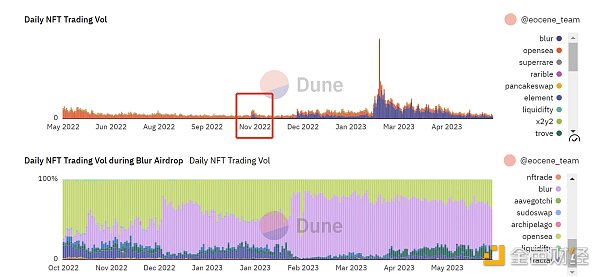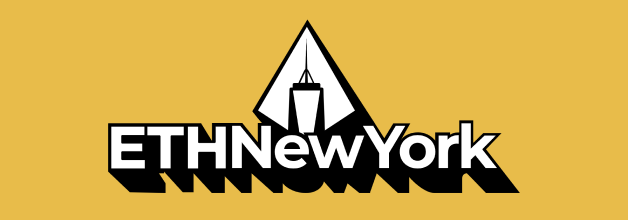Fragmented identity data, reshaped on the blockchain
"Identity" is the most basic information for everyone. When it comes to identity, the majority of people have the ID card in their minds. The ID card briefly records the objective facts about each person: date of birth, ethnicity, and location of household registration. In order to prove that the information is true, the state endorses each citizen by issuing a personal identification card, for which a unique number is also stamped, that is, the identification number. Modern society can prove our absolute identity is the ID card endorsed by each country, through this certificate can engage in various social activities. But at the moment, just the ID card is not enough to meet our needs for social activities.
What we need to know is that the ID card is not the same as the identity. The ID card is just the personal identification certificate. Our true identity is hosted in databases of government agencies, banks, hospitals, and social platforms. In other words, important objective historical event records about individuals are recorded by these institutions. These records constitute unique individual information, making each person become Have a certain degree of recognition.
Historically, identity has gone through three stages.
1. Physical identity of the seal
- Inventory of China's four major trade areas: what has the blockchain "horse enclosure" done over the years?
- Global assets seek anchor under the crisis, which may become the starting point of Bitcoin's eternal bull market
- MakerDAO founder: The foundation will be dissolved in two years, and the preliminary draft of the governance transfer plan will be announced next week
The physical identity of the seal is that in the era of limited ancient technology, the authoritative person proved his identity by making a seal with a private seal, but due to low productivity, the seal cannot record a large number of objective facts, so it cannot be used as an accurate definable concept of identity, but based on This kind of identity logic has resulted in the change and evolution of identity.
2. Card identity
ID cards, passports, driver's licenses, etc. all belong to the card identity, which reflects more personal information than the physical identity record of the seal, but the card information record is still a fragmented identity fragment. For example, hospital records are owned by the hospital, immigration records are owned by the immigration bureau, and shopping records are owned by the mall. These records are all fragmented. Information between different management departments cannot be communicated and identity information cannot be shared. I can't help but think of the joke that the card's identity appeared to prove that "my mother is my mother". The inconvenience of sharing information has brought great inconvenience.
3. Internet identity
The Internet identity phase has the concept of true personal identity mentioned at the beginning of the article. Personal information is authorized to a third party, and then the third party is concatenated with the identity records of each platform to form a definable unique identity. For example, WeChat records consumption, travel, medical treatment, etc., and Alipay records personal credit information through Sesame Credit.
However, since the information storage method of the Internet is centralized, there are inherent limitations in the use process.
1. Identity data security and privacy issues. The information is completely centralized, and the security and privacy of identity data are exposed to the risk of leakage and tampering.
2. Identity data compatibility issues. The compatibility cost of identity data between different organizations is very high, which leads to the problem of fragmentation and inconsistency of identity data. Users need to repeatedly manage the identity under different applications, and the operation is cumbersome.
3. Ownership of identity data. Users have no control over personal private identity information, resulting in excessive disclosure and misuse of personal information.
Based on the problems highlighted by the Internet's identity information, what kind of spark can block chain and identity data make?
The immutable and traceable characteristics of the blockchain guarantee the validity of personal information and improve the credibility of identity data; when using personal information, the asymmetric encryption technology and zero-knowledge proof technology of the blockchain can greatly limit Ensure the privacy and security of personal information.
Not only that, due to the characteristics of the blockchain, everything in life can be digitized, including personal identities, personal assets, etc. Through the operation of the blockchain, people ’s current application of “identity data” is changed, making every Individuals have unique "digital identities".
In addition, in the world of blockchain, personal identity data has come out of the fragmented era. On-chain storage will keep complete records of identity data on the blockchain. In other words, the era of blockchain identity data makes every Natural persons have complete identification. Everyone seems to carry a removable database anytime, anywhere, and only needs authorized access to use any of their own data and information at any time, breaking the information barriers between institutions in the era of Internet identity data.
The emergence of blockchain technology makes various fields are exploring the application of blockchain technology. Blockchain has also appeared in the field of identity data.
According to running financial news, the blockchain application platform in Xicheng District, Beijing was officially launched on March 26. Citizens do not need to submit original ID cards and photocopies and use electronic licenses when handling nearly 100 items such as the configuration of passenger car indicators and lawyers ’licenses. That's it, "swipe your face" to do things. Not only do you not need to bring your ID card, but you do n’t need to prepare an ID if you entrust others to do it. The client only needs to authorize the client on the mobile phone applet, which is the first time in the city.
It is reported that the change of personal information can be completed within 5 minutes; the cancellation of the business license once required at least one week is compressed to be completed within one day, and the “chain” is handled, reducing materials, running distance, time and efficiency. Break through the information barriers between various institutions, improve efficiency, and enable people to truly experience the convenience and sense of experience brought by blockchain technology.
With the continuous development of society and technology, people's demands for autonomy, privacy, security and convenience of personal identity information are increasing. The return of identity data to the ontology is an inevitable development trend, and blockchain makes it possible With the empowerment of the blockchain, the world will be truly connected by the data link into a global village.
The path of development is tortuous, but the future is bright. Let us wait and see the story of blockchain and identity data.
We will continue to update Blocking; if you have any questions or suggestions, please contact us!
Was this article helpful?
93 out of 132 found this helpful
Related articles
- European Central Bank Market Infrastructure and Payment Division Director: CBDC's main risks and problems are bank disintermediation
- Technology Sharing | Synergy between Cryptography, Blockchain and Privacy Computing
- Security Monthly Report | More than 17 typical security incidents occurred in March, the prospects and risks of Ethereum Defi coexist
- QKL123 Blockchain List | USDT market value jumped to fourth place, transaction popularity dropped significantly (March 2020)
- Opinion | Zhongjing Jinchuang Zheng Runxiang: RMB internationalization should establish a mechanism for applying RMB digital currency in the field of commodity trading
- The People's Bank of China: unswervingly promote the research and development of legal digital currency
- Blockchain Application Case: Eliminating Hype






